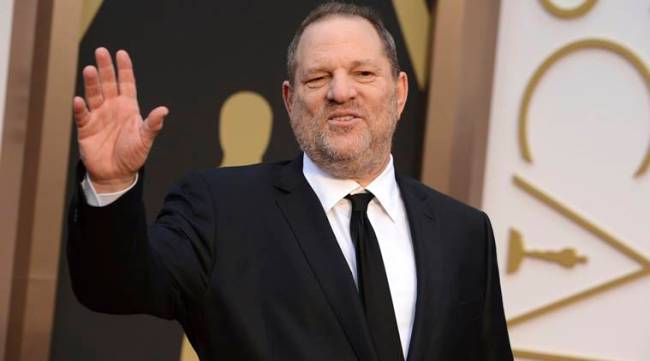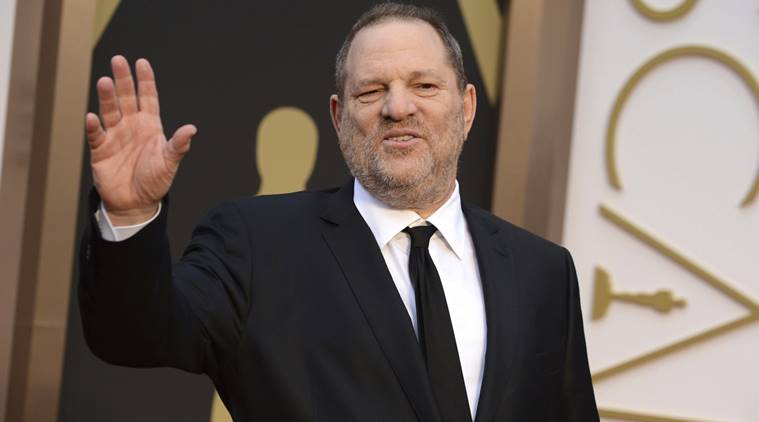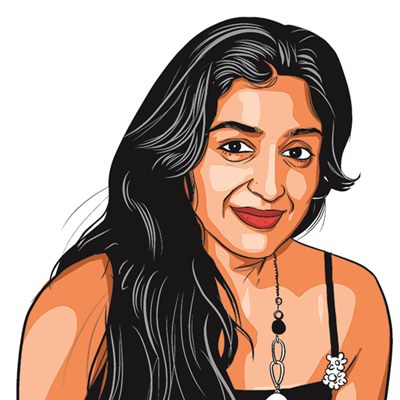Opinion Hearing the silence
The Weinstein controversy has broken a deathly hush. Film industries in India must confront their own truths
 The Guild had voted on October 16 to begin the process of expelling Harvey Weinstein.
The Guild had voted on October 16 to begin the process of expelling Harvey Weinstein.  Harvey Weinstein
Harvey Weinstein
Anger, pain and a tinge of joy are the recursive emotions I have been waking up to ever since I read reports on how Harvey Weinstein sexually harassed women in Hollywood for years. Some of these women are actors I have been longing to co-star with even if they reside in another part of the globe. Today, however, I have found a new connect with these women — of shared misery and injustice meted out to our kind.
I began acting in films when I was 21, in a low-budget film, won all the best debut awards, found a dependable manager and have till date been part of close to 50 films. It has been a fairy tale for an outsider, bouncing from one film set to another, choosing my films as assertively as those films chose me. And through this journey I have not once faced the dreaded syndrome of the “casting couch”. So then, why am I speaking out and why am I going through these strong emotions? It’s a two-part story.
Part I, made up of the casting couch and sexual harassment in the Indian film industry, has been covered sporadically by the Indian media. There have been public statements by female actors that the phenomenon is commonplace across film industries and there is exclusion if there is any resistance. Not just women, today’s reigning young male actors admit that they too are victims and this is typical for strugglers. From statements like “some people enter the industry only to sleep around” to a hilarious storytelling session called “reptile dysfunction”, such accounts suggest that being open to harassment is one of the principal qualifications for becoming an actor.
However, it baffles me why media houses in India cover these stories like scoops of the day. Are we incapable of producing sound journalism like The New Yorker and The New York Times that has challenged an entire industry’s workplace ethics while catalysing the destruction of a powerful mogul?
It also makes me wonder why members of the Indian film industry, mostly dominated by men, especially those who do not subscribe to such unprofessionalism, keep quiet? Are they not affected by these accusations, don’t they feel like standing up, breaking the silence and voicing the truth? Are they unaware or do they lie low because it is of no serious consequence to them?
Do they not realise that by not speaking up they naturally become co-signatories to such action? Why is there such a hush over these issues in the many associations and trade unions in the film industry? Are they not inclined to finding the truth, uncovering allegations and setting the record straight to the world that this is a workplace that is serious about its art and the processes that go behind it? In the context of a world of survive or perish, do they not feel responsible for ensuring an active and sensitive space for recourse for their members (men, children and women alike) who are violated?
Finally, what are the state and the judiciary doing to keep fundamental rights, the Right to Equality and the Right against Exploitation, in this country alive when such allegations are made? Can we not, through our cultural institutions, take concrete actions to protect the dignity of people who are vulnerable while working in a fragmented creative space that has been accorded industry status?
Part II: Here are some of the quotes from women who underwent assault by Weinstein, as reported by The New Yorker: “The thing with being a victim is I felt responsible, Because, if I were a strong woman, I would have kicked him in the balls and run away. But I didn’t. “When I see him, it makes me feel a little and stupid and weak. “I was in a vulnerable position and I needed my job. It just increases the shame and the guilt.”
The emotions of weakness and futility that these different women reported affected me more deeply than the physicality of the assault on them. In an industry where the pressure to perform is high and survival is key, I have seen my male colleagues go through similar frustrations. But I and my female colleagues have an additional burden — the constant battle against sexism. The Hegelian dynamic plays out daily on and off the film sets — women are not lesser beings, but because they are assumed to be, they are subjected to inferior conditions. And this inferiority projects itself through the feeling of weakness and subjugation.
Eight months ago, a female colleague from the Malayalam film industry came out in the open about the serious violations she faced. It has since spun a turbulent saga of discussions regarding sexism in the film industry. The noise that emerges from the disagreements is sometimes painfully deafening but is far better than the culture of inaction and silence. However, the popular discourse on the obvious and subtle ways in which women are degraded was relegated as an issue that solely belonged to the Malayalam film fraternity.
The Weinstein story and the way it has shaken the roots of Hollywood has made apparent the fact that, across the world, there is a pressing need to recognise and correct the circumstances women subsist in, in order to move forward. I sincerely hope film industries the world over and in India use this as a watershed moment to confront their own truths, change the way movies are made and the way women are engaged in the industry. We must work with a sense of urgency for breaking stereotypes, misogyny and the discrimination that accompanies it, behind and in front of the camera.





